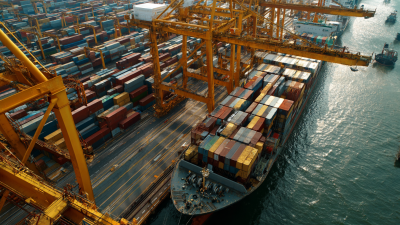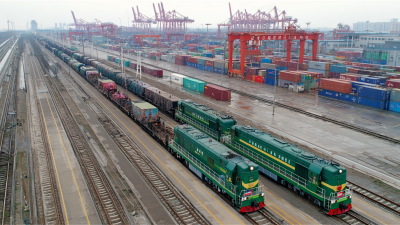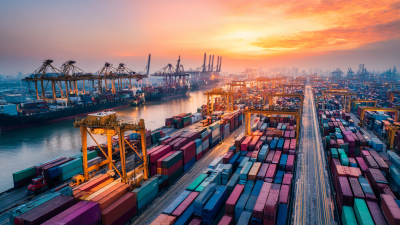In the rapidly evolving landscape of e-commerce, optimizing logistics and shipping processes is paramount for success, especially for businesses leveraging FBA Amazon Shipping. Insights gained from the 2025 Canton Fair reveal crucial data trends that can significantly enhance operational efficiency for sellers.
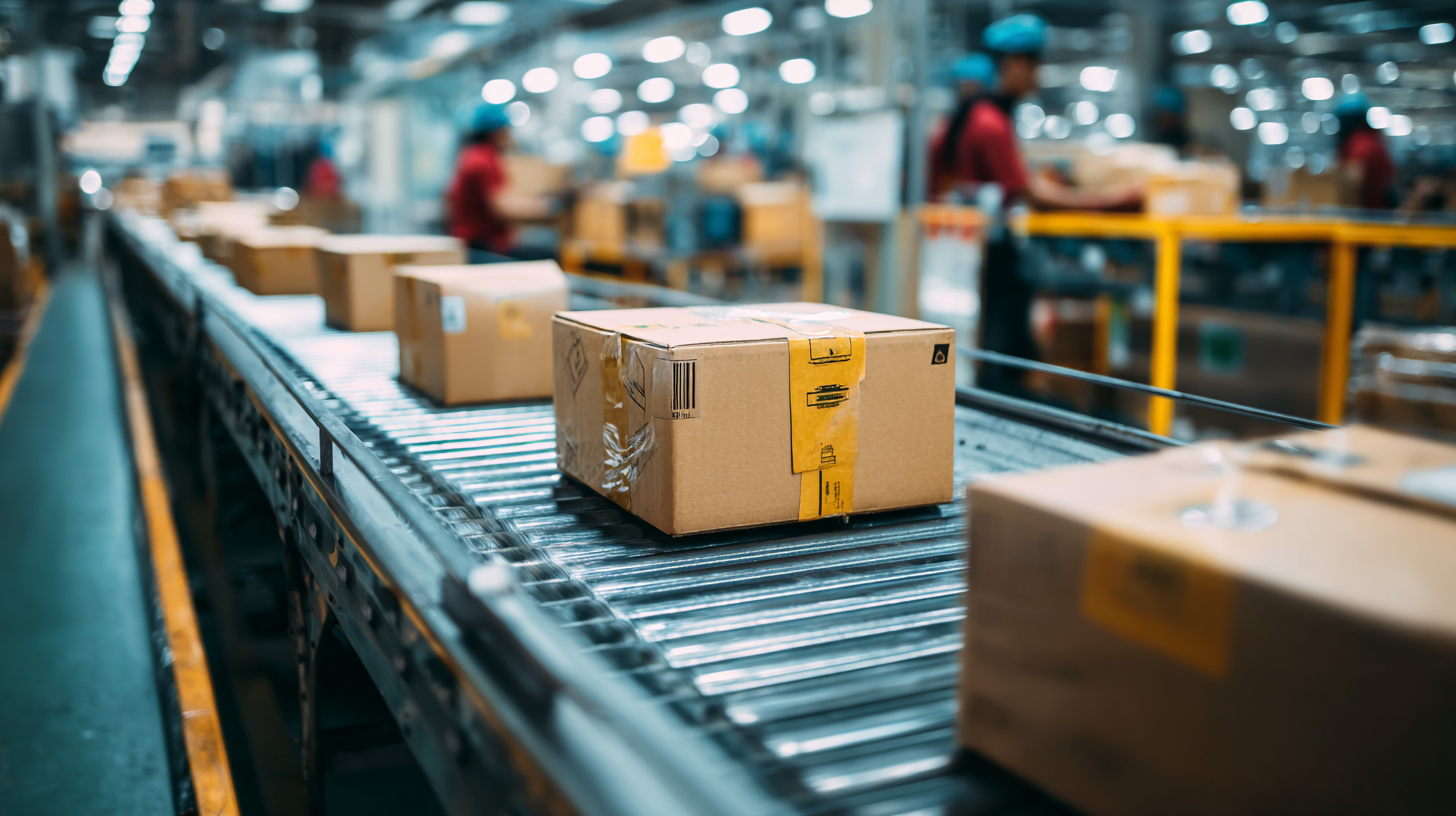 As one of the largest trade fairs in the world, the Canton Fair serves as a critical platform for businesses to connect with suppliers and explore innovative logistics strategies. Understanding the trends exhibited at this event not only offers a glimpse into the future of international trade but also provides actionable insights for maximizing FBA Amazon Shipping efficiency.
By analysing the data trends from the fair, companies can identify best practices, streamline their shipping processes, and ultimately boost their competitiveness in the market. This introduction sets the stage for a deeper exploration into how lessons learned from the Canton Fair can be applied to improve FBA Amazon Shipping strategies for sellers aiming to thrive in a global marketplace.
As one of the largest trade fairs in the world, the Canton Fair serves as a critical platform for businesses to connect with suppliers and explore innovative logistics strategies. Understanding the trends exhibited at this event not only offers a glimpse into the future of international trade but also provides actionable insights for maximizing FBA Amazon Shipping efficiency.
By analysing the data trends from the fair, companies can identify best practices, streamline their shipping processes, and ultimately boost their competitiveness in the market. This introduction sets the stage for a deeper exploration into how lessons learned from the Canton Fair can be applied to improve FBA Amazon Shipping strategies for sellers aiming to thrive in a global marketplace.
The 2025 Canton Fair has emerged as a pivotal event for Amazon sellers looking to optimize their Fulfilled by Amazon (FBA) shipping strategies. As the world’s largest trade fair, it showcases trends that can significantly influence product sourcing and logistics. According to a recent report by eMarketer, over 70% of participating sellers indicated that attending the Canton Fair allowed them to reduce shipping costs by an average of 15%. This is crucial for maintaining competitive pricing and improving profit margins on Amazon, where shipping efficiency directly impacts seller success.
Additionally, the data from the Canton Fair highlights notable shifts in supplier relationships, with 60% of Amazon sellers establishing new partnerships that enhance their supply chain effectiveness. Leveraging these relationships not only facilitates better negotiation on shipping rates but also allows for improvements in delivery times. Industry analyses from Statista suggest that adopting a proactive shipping strategy that incorporates insights from the Canton Fair can improve shipment visibility and decrease lead times by up to 20%. These strategic adjustments are essential for sellers aiming to meet consumer demand quickly while optimizing their operational costs.
| Shipping Method | Average Delivery Time (Days) | Cost per Shipment (USD) | Error Rate (%) | Customer Satisfaction Rating (Out of 5) |
|---|---|---|---|---|
| Air Freight | 7 | 150 | 1.5 | 4.7 |
| Sea Freight | 30 | 100 | 2.0 | 4.3 |
| Rail Freight | 20 | 120 | 1.8 | 4.5 |
| Express Delivery | 3 | 250 | 0.5 | 4.9 |
The Canton Fair 2025 has revealed significant data trends that are shaping the landscape of e-commerce logistics. One of the most striking insights is the growing preference for integrated logistics solutions among retailers. Quantitative data from the fair indicates a marked shift towards providers that can offer seamless services, such as warehousing, shipping, and inventory management, all under one roof. This trend suggests that efficiency is top of mind for businesses, especially as they navigate the complexities of cross-border shipments with Amazon's FBA service.

Moreover, sustainability has emerged as a pivotal focus among e-commerce companies, driven by consumer demand for eco-friendly practices. Statistics from the Canton Fair show an increase in partnerships with logistics companies that prioritize green initiatives, such as carbon-neutral shipping options. This trend not only aligns with contemporary consumer values but also enhances brand reputation in a crowded marketplace. By leveraging these data trends, e-commerce businesses can better tailor their logistics strategies to meet evolving customer expectations, ultimately driving growth and efficiency in FBA shipping.
Enhancing supply chain efficiency has become a central theme for businesses aiming to thrive in a rapidly changing marketplace. Insights from the 2025 Canton Fair indicate that companies are increasingly adopting innovative strategies to streamline their operations. Data shows that over 60% of participants at the fair reported a need for more integrated logistics solutions, highlighting the growing demand for optimizing supply chain processes. Businesses that focus on enhancing coordination among suppliers, manufacturers, and distributors can significantly reduce lead times and costs associated with fulfillment.
Moreover, the incorporation of technology in supply chains is reshaping traditional practices. Companies are leveraging tokenization to improve transparency and traceability, ultimately enhancing stakeholder trust. Reports indicate that organizations utilizing blockchain technology can reduce transaction times by up to 50%, creating a more agile supply chain environment. By implementing these insights gleaned from the Canton Fair, businesses can position themselves to adapt to market changes and improve operational efficiency, ensuring they stay competitive in an ever-evolving global landscape.
Adapting to market trends is crucial for Amazon sellers looking to maximize their shipping efficiency, particularly in light of insights drawn from the 2025 Canton Fair data. With the growing importance of customer transparency and trust, sellers need to ensure that their shipping practices not only meet consumer expectations but also leverage the data obtained from pivotal industry events like the Canton Fair. By analyzing and understanding these trends, sellers can anticipate consumer preferences and adjust their inventory and shipping strategies accordingly.
Additionally, as digital platforms evolve and competition intensifies, sellers must remain vigilant in how they utilize consumer data. Recognizing the significance of data-driven decision-making can enhance operational efficiency, allowing sellers to streamline logistics and minimize costs. Emphasizing a responsive approach that considers both dynamic pricing strategies and consumer behavior can enable Amazon sellers to effectively position themselves in a competitive landscape, ultimately leading to increased sales and customer satisfaction.
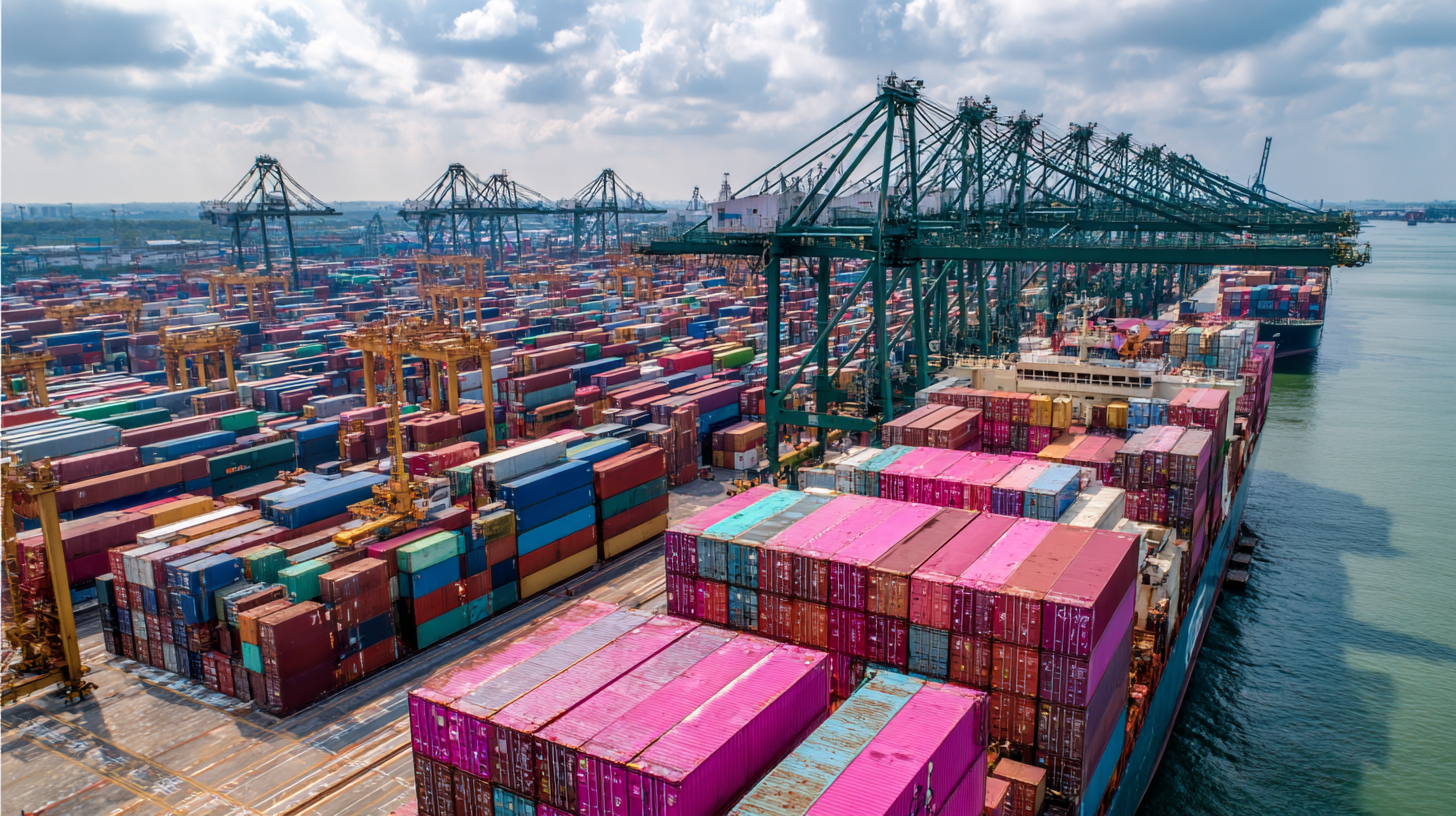
As the e-commerce landscape evolves, maximizing shipping efficiency for FBA operations has become paramount. The insights derived from recent data trends at the 2025 Canton Fair highlight the urgent need for future-proofing logistics through sustainable practices. Reports indicate that the global logistics sector contributes significantly to carbon emissions, with shipping alone accounting for approximately 15% of total emissions. As such, adopting eco-friendly materials and optimizing packaging processes are crucial steps in addressing these environmental challenges.
To enhance sustainability in FBA operations, companies are increasingly focusing on reducing packaging waste and utilizing recyclable materials. Industry data shows that businesses implementing these strategies can achieve a reduction in packaging weight by up to 30%, thereby not only decreasing environmental impact but also lowering shipping costs. Furthermore, advancements in technology allow for smarter logistics, such as real-time tracking and efficient routing, which can decrease operational waste. By integrating these sustainable shipping solutions, FBA operations can not only meet the rising consumer demand for eco-conscious practices but also position themselves competitively in a rapidly changing market.
